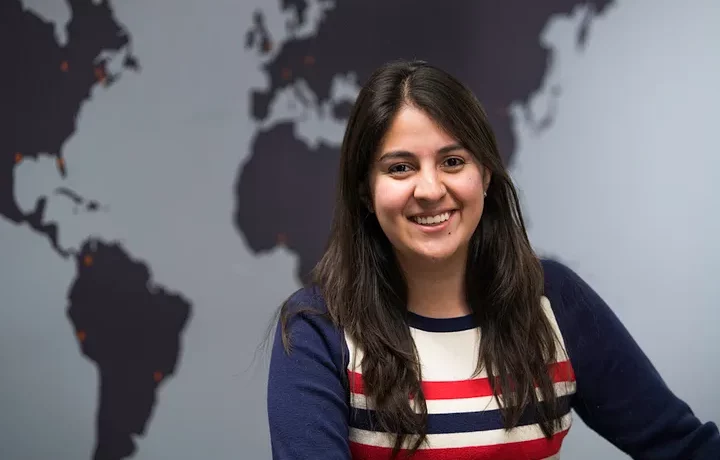This profile is part of a five part series in which the Kapor Center for Social Impact is sharing stories from our diverse tech community in celebration of Hispanic Heritage Month!
What type of work do you do?
I work alongside Unshackled VC’s partners to find, fund, and support immigrant entrepreneurs solving bold problems with technology.
How do you identify/What is your background?
Due to Colombia’s growing conflict my family and I fled to Orlando, Florida when I was 7 years old. My parents worked in housekeeping and custodial jobs their entire lives to buy a home and support their family. They always encouraged my brothers and I to strive for higher education as a way to earn more and pursue our passions. Education to my family meant freedom and prosperity.
What brought you into tech?
I initially started on the path of law and politics during my college time but fell in love with tech by my 2nd year at Berkeley. I have became passionate about the intersection between tech and public policy/politics. When I was in my 3rd year at Berkeley I founded a civic tech startup with some peers. Unfortunately, due to family obligations to my parents and student debt, I was unable to pursue this path. I started working at FWD.us where I helped fundraise from top tech leaders and venture capitalists around the issue of immigration reform. During my time there, I was introduced by various individuals in my network to Manan and Nitin who were at the time fundraising for Unshackled VC first fund. They hired me as their 4th team member to focus on ecosystem building, deal sourcing, and portfolio support. Since then my role has expanded into deal management and due diligence as well.
What do you enjoy most about your role and the work you do?
I love meeting entrepreneurs at the early stage where Unshackled VC invests. We start working with many of our companies right after sketches or a prototype, so we get to see founders build out their product and team from ideation into successful companies. In the past two years I have worked with over 2,000 companies. It’s been an amazing experience to meet with such talented and driven founders while also learning about the various approaches to the many problems that exist. Most importantly, working with immigrant founders has been life changing. Despite all of the challenges they face, including lack of access to the right networks, mentorship, and resources, these founders have immense grit and perseverance against all odds, culminating in a supercharged exemplification of the skills necessary to really be successful in business. I feel especially connected to these founders since I share a similar immigrant experience with many of them. We are all American dreamers that are long on ambition and short on things to lose.
How do you think tech can help bring more opportunities to the Latinx community?
First, tech needs to build products with these users in mind. As 500 partner Monique Woodward says, “There are no ‘black startups’ or ‘Latino startups’, but there are startups where significant growth can be driven by activity from these user groups.” The smart companies will acknowledge the consumption patterns and over-indexing in this demographic and invest time developing products that capitalize on it. With a population that will account for more than half of the population growth in the U.S. by 2020 and nearly 85% of growth by 2060, their current $1.4 trillion spending power will grow even larger. Latinx smartphone users spend nearly 10.5 hours per week using the internet on their devices, vs. 8.4 hours for total users. (25% increase from peers).
Second, tech leaders and companies overall need to do better at hiring and retaining Latinx talent. Latinx currently account for only 4.4% of the professional-level workforce — both tech and non-tech positions at the headquarters and local branches of the top 75 Silicon Valley tech firms.
Third, encourage a culture that celebrates diversity as opposed to downplays the unique and special qualities of individual contributors. I recently had the pleasure of visiting Mitu headquarters in LA. It was an amazing experience and the first time I walked into a startup and saw myself not only in the leadership, but the staff and even the wall art.
I never realized how pervasive and immersive Silicon Valley’s white male culture was until I noticed these reflections of my own identity around me felt so profoundly familiar yet disturbingly foreign all at once.

